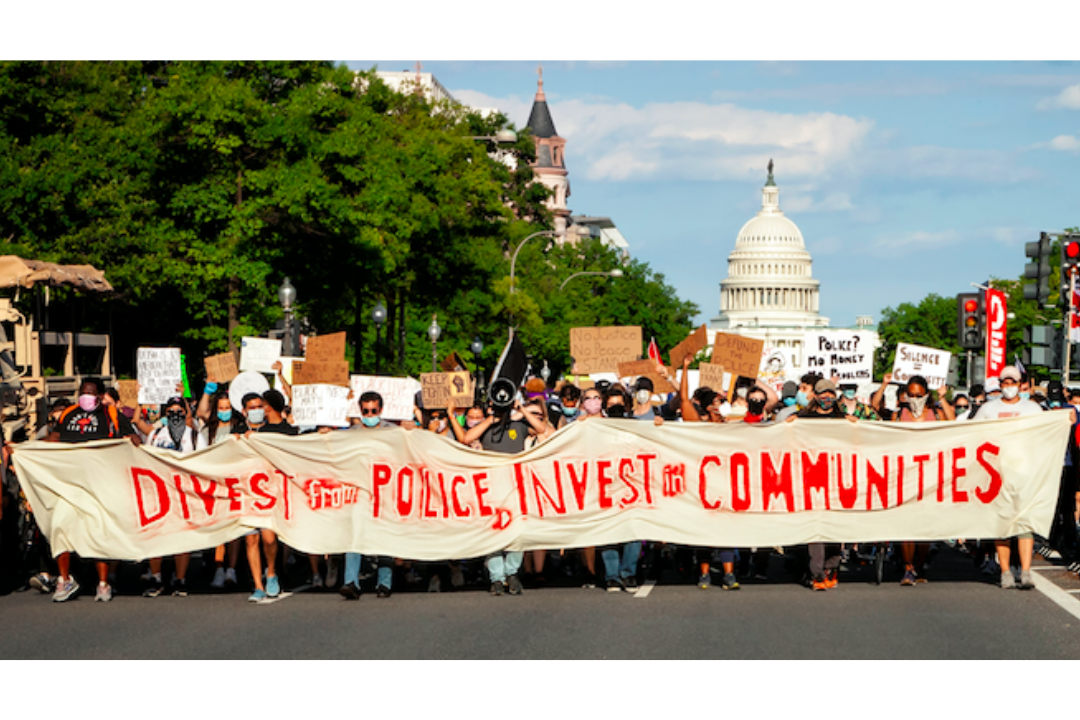Across the country, people are demanding that the government divest from law enforcement and invest in communities of color that have been over-policed and under-served. Any discussion of shrinking the criminal legal system and investing in low-income communities of color must include fines and fees. When state and local policymakers use police and the criminal legal system to raise revenue, they systematically extract wealth from Black and Brown people — who not only are disproportionately stopped, cited and arrested, but more likely to face potentially violent encounters with law enforcement.
The Fines and Fees Justice Center supports efforts to redirect police funding to human and social services that better protect public safety and health. The current economic crisis, as well as community demands for reform, are forcing state and local governments to revisit and reassess their law enforcement budgets. Decisions made in the next few months will have long-lasting impacts.
Fines and fees serve as a common, yet counterproductive, revenue source. Eighty percent of convictions are punishable by fines, and every conviction carries additional fees — often hundreds of dollars and often exceeding the underlying fine. Due to over-policing in Black and Brown communities, these families are most likely to get trapped in a cycle of debt and criminalization simply because they can’t afford something as minor as a traffic ticket.
Aggressive collection practices — like the widespread suspension of driver’s licenses for nonpayment — increase police-civilian encounters and make it harder for people to pay what they owe. Reliance on this unreliable and inefficient source of government revenue is bad economic policy that can cost more money than it even generates.
To reduce policing, we ultimately must end reliance on fines and fees to raise revenue. Fines and fees are harmful, regressive taxes, imposed on the communities least able to afford them. Eliminating fees and making fines equitable would result in millions of dollars remaining in the communities that are demanding public investment. This would allow more individuals and families to meet their basic needs, while increasing economic prosperity for everyone.
Since the 2008 recession, state and local governments have increasingly used fines and fees to fill their budget shortfalls. Too often, police are incentivized to issue citations for traffic, municipal code, and other low-level violations instead of focusing on public safety. Policing-for-profit has no place in our communities. Government can, and must, do better.
Below are some recommendations for advocates and policymakers considering working toward defunding law enforcement and reinvesting in the communities most harmed by mass criminalization, racial injustice, and economic inequality.
- State and local jurisdictions should stop assessing all court fees, surcharges and other costs, while ensuring that all fines are equitably imposed and enforced.
- When jurisdictions do impose fines, they should identify ways to reduce enforcement that can lead to savings without harming public safety. Policymakers must take into account the full costs of collections and enforcement, as well as the long-term financial harms to individuals, families, and businesses.
- Defund law enforcement that’s geared toward revenue raising, while reinvesting that money in communities. Law enforcement should never impose a quota system requiring or suggesting that officers should write a set number of tickets, nor should police performance be evaluated based on the number of tickets an officer writes. Policing should never be tied to raising revenue because it creates perverse incentives.
- Provide data transparency to disincentivize pretextual stops and policing-for-profit. Data on traffic stops would allow us to evaluate how police are being deployed and whether they are addressing serious public safety issues or merely raising revenue. Such data should detail where traffic stops occur, against whom, and for which violations. This data should also be publicly accessible.
- No revenue from fines and fees should go directly or indirectly to law enforcement. If fines are imposed, the revenue should flow to general funding and not be required for government budgets to break even.
